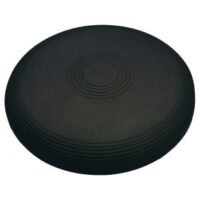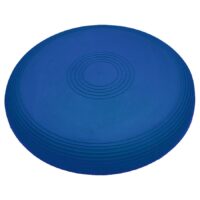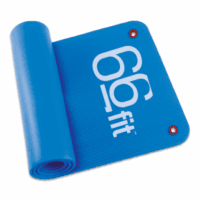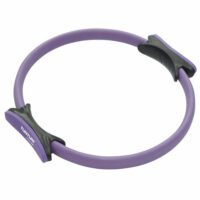Physiotherapy Treatment
Physiotherapy Treatment: Comprehensive Care for All Ages
Physiotherapists play a crucial role in managing pain, recovering from injuries, and maintaining physical health. They use exercise, manual joint therapy, soft tissue techniques, education, and advice to support individuals of all ages. But why is physiotherapy so effective?
Why Physiotherapy?
Physiotherapy is essential because it provides a holistic approach to health. It addresses not just the symptoms but also the underlying causes of pain and dysfunction. Whether you’re dealing with a sports injury, recovering from surgery, or managing a chronic condition, physiotherapy offers a path to pain relief and improved function.
Read more: What is Physiotherapy?

How Does Physiotherapy Work?
Physiotherapists employ a variety of techniques to help you recover and maintain your health. Here’s a closer look at the main methods:
Manual Therapy:
Techniques like joint mobilisation, joint manipulation, and massage are used to improve mobility and relieve pain. These hands-on methods help restore movement and reduce discomfort.
Read more: Manual Therapy Techniques
Exercise Therapy:
Physiotherapy exercises are evidence-based and tailored to your specific needs. Whether it’s muscle stretching, core exercises, or strengthening routines, your physiotherapist will design an exercise plan to help you regain strength and function.
Read more: Exercise Therapy
Supportive Techniques:
Strapping, taping, and the use of braces can prevent injuries and assist in pain relief. Techniques like kinesiology taping offer additional support during recovery.
Read more: Supportive Techniques
Acupuncture and Dry Needling:
These methods are used to relieve pain and improve muscle function. They can be particularly effective for chronic pain and muscle tightness.
Read more: Acupuncture and Dry Needling
Biomechanical Analysis:
Accurate assessment of movement patterns helps identify and correct poor techniques or postures that contribute to injuries. Tools like gait analysis and video analysis ensure a thorough evaluation.
Read more: Biomechanical Analysis
What Does Physiotherapy Treat?
Physiotherapy covers a broad range of conditions, including:
Acute and Sub-Acute Injuries:
Early treatment can prevent chronic pain and further complications. Techniques like joint mobilisation and soft tissue therapy are often used.
Read more: Injury Treatment
Sports Injuries:
Specialised sports physiotherapy helps athletes recover faster and perform better. This includes injury management and performance enhancement strategies.
Read more: Sports Physiotherapy
Women’s Health:
Women’s Health Physiotherapists offer specialised treatments for pelvic floor issues, pregnancy-related discomfort, and postnatal recovery.
Read more: Women’s Health Physiotherapy
Workplace Wellness:
Ergonomic assessments and workplace wellness programs can reduce work-related injuries and improve productivity.
Read more: Workplace Wellness
Conclusion
Physiotherapy offers a comprehensive approach to treating pain and improving function. Physiotherapists provide tailored care to meet your needs, whether you need acute injury management, chronic pain relief, or support during recovery.

What to Do?
For professional advice and a personalised treatment plan, consult your physiotherapist. They can help you manage pain, recover from injuries, and improve your overall health.
Rochedale - Call 38410277
Book Online: RochedaleSalisbury - Call 32751044
Book Online: SalisburySandgate - Call 32691122
Book Online: SandgatePhysiotherapyTreatment FAQs
- What is Physiotherapy? Physiotherapy involves treatments that help restore, maintain, and maximise strength, function, and movement. It uses various techniques such as manual therapy, exercise, and education to treat conditions and injuries.
- Why Should I See a Physiotherapist? Physiotherapists provide treatments that alleviate pain, improve mobility, and promote overall health. They tailor their approach to your specific condition, ensuring the best outcomes. Read more: Why See a Physiotherapist?
- How Can Physiotherapy Help with Pain Relief? Physiotherapy uses manual techniques, exercises, and modalities like acupuncture to reduce pain and inflammation, enhancing your recovery and quality of life. Read more: Pain Relief with Physiotherapy
- What Types of Injuries Can Physiotherapy Treat? Physiotherapy can treat a wide range of injuries, including sports injuries, post-surgical recovery, chronic conditions like arthritis, and acute injuries like sprains and fractures. Read more: Types of Injuries Treated by Physiotherapy
- Where Can I Find a Qualified Physiotherapist? You can find qualified physiotherapists at clinics, hospitals, and wellness centres. Visit PhysioWorks to locate a professional near you.
- When Should I Start Physiotherapy After an Injury? Starting physiotherapy as soon as possible after an injury can accelerate your recovery and prevent complications. Early intervention helps manage pain and restore function effectively. Read more: When to Start Physiotherapy
Related Articles
- Physiotherapy for Sports Injuries – Discover how physiotherapy can help you recover from sports injuries and enhance your performance.
- Women’s Health Physiotherapy – Learn about specialised treatments for pelvic floor issues and postnatal recovery.
- Ergonomics and Workplace Wellness – Explore strategies to reduce work-related injuries and improve workplace health.
- Acupuncture & Dry Needling – Learn how these techniques can relieve pain and improve muscle function.
- Core Strengthening Exercises – Find out how to build a strong core to support overall health and prevent injuries.
- Posture Correction Techniques – Discover ways to improve your posture and reduce the risk of injury.
- Real-Time Ultrasound Physiotherapy – Learn how real-time imaging can help retrain muscles effectively.
- Balance and Proprioception Exercises – Enhance your stability and coordination with targeted exercises.
- Managing Chronic Pain with Physiotherapy – Explore effective strategies to manage and reduce chronic pain.
- Physiotherapy Treatment Techniques – Discover various physiotherapy techniques used to treat different conditions.
- Benefits of Physiotherapy – Learn about the wide-ranging benefits physiotherapy can offer.
- Latest Research in Physiotherapy – Stay updated with the newest findings and advancements in physiotherapy.
















































































